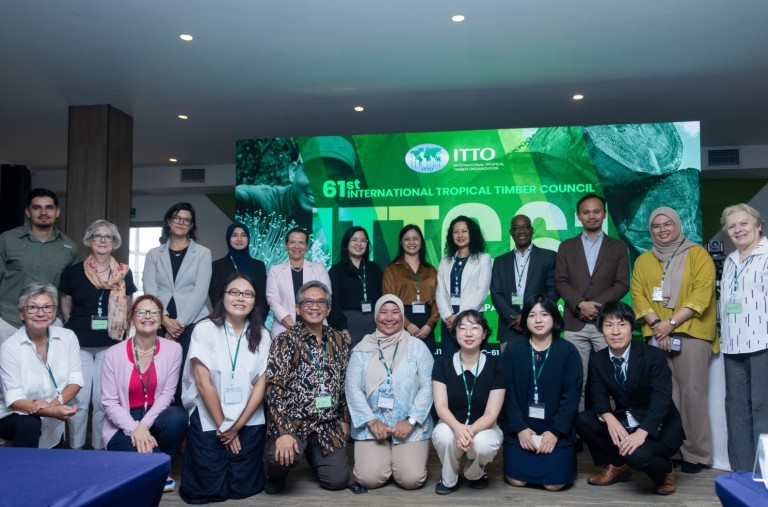

07.11.2025
At the latest session of the International Tropical Timber Council (ITTC), that was held in Panama in October 2025, the Trade Advisory Group (TAG) finalized and presented its 2025 statement, emphasizing the urgent need to support legal and sustainable tropical timber trade amid growing regulatory and economic challenges.

The meeting reaffirmed the private sector’s commitment to sustainable forest management and constructive dialogue within the ITTO framework.
Finalization of the 2025 TAG Statement
During the recent meeting of the Trade Advisory Group (TAG) held in the framework of the International Tropical Timber Council (ITTC), members finalized and adopted their 2025 statement, presented by Ashley Amidon, Executive Director of IWPA at the Annual Market Discussion on 28 October 2025.
This statement reflects the collective voice of the private sector within the International Tropical Timber Organization (ITTO), highlighting the urgent need to safeguard the future of sustainable tropical timber trade in an increasingly uncertain international context.
A Challenging Global Context for the Tropical Timber Trade
The TAG emphasized that the international tropical timber industry is facing profound instability linked to trade restrictions, retaliatory tariffs, and tightening regulatory measures. These factors are creating a challenging environment for operators striving to maintain both the viability and sustainability of legal tropical timber trade.
TAG warned that such constraints, if left unchecked, could lead to reduced market access, disruption of supply chains, and a loss of competitiveness for responsibly managed forests. It stressed that forests retain their economic and social value only when the trade in legal and sustainable wood is maintained.
The group therefore urged policymakers to adopt trade frameworks that actively support sustainable forest management (SFM), underlining that good trade policy is good forest policy. TAG also proposed that the 2004 ITTO study on trade barriers be updated to provide actionable recommendations to help ease obstacles facing the tropical timber sector.
Key Issues Raised: CITES, EUDR, and Market Confidence
TAG’s statement also addressed several pressing regulatory issues:
A Call for Collaboration and Recognition of the Sector’s Role
In conclusion, the TAG reaffirmed its commitment to collaboration among governments, industry, and civil society. The group underscored that the tropical timber industry is a partner in forest conservation, not a driver of deforestation, and that maintaining a viable, transparent trade in sustainably managed wood is essential to achieving global environmental goals.
The statement closed with a strong message:
“Our industry is a bulwark against deforestation, not a driver. We must ensure that the global tropical timber trade continues to be a force for good — supporting livelihoods, sustaining forests, and contributing to a renewable, climate-positive future.”